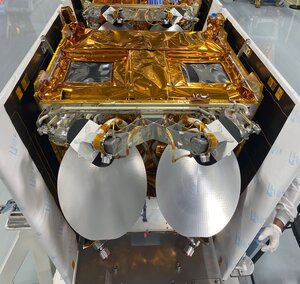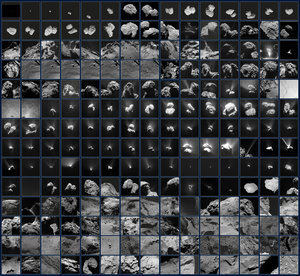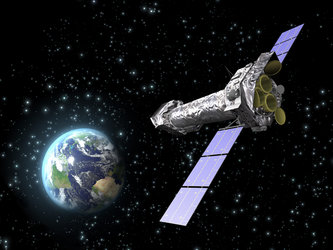XMM-Newton detects water on Tempel 1
These images, taken by the Optical Monitor on board ESA's XMM-Newton observatory on 3 and 4 July 2005, show a comparison between the states of the comet before and just after impact.
The images were taken in the blue (top) and ultraviolet channels (bottom) of the instrument. The ultraviolet images show the emissions of hydroxyl ions, the direct decay product of water.
About 1.5 hours after the impact, the brightness of hydroxyl groups is increased by a factor of about five. Later, about 4.5 hours after the impact the ultraviolet emission is decreased again which indicates that the peak has passed.
The presence of water in Tempel 1 is consistent with preliminary measurements of the composition of the comet made last week by the ALICE instrument on ESA's Rosetta spacecraft.
For more information:
Rita Schulz, Principal Investigator for XMM-Newton Tempel 1 observations, ESA-ESTEC (The Netherlands)
E-mail: rita.schulz @ esa.int
Norbert Schartel, ESA XMM-Newton Project Scientist, ESAC (Spain)
E-mail: norbert.schartel @ sciops.esa.int















 Germany
Germany
 Austria
Austria
 Belgium
Belgium
 Denmark
Denmark
 Spain
Spain
 Estonia
Estonia
 Finland
Finland
 France
France
 Greece
Greece
 Hungary
Hungary
 Ireland
Ireland
 Italy
Italy
 Luxembourg
Luxembourg
 Norway
Norway
 The Netherlands
The Netherlands
 Poland
Poland
 Portugal
Portugal
 Czechia
Czechia
 Romania
Romania
 United Kingdom
United Kingdom
 Slovenia
Slovenia
 Sweden
Sweden
 Switzerland
Switzerland






































